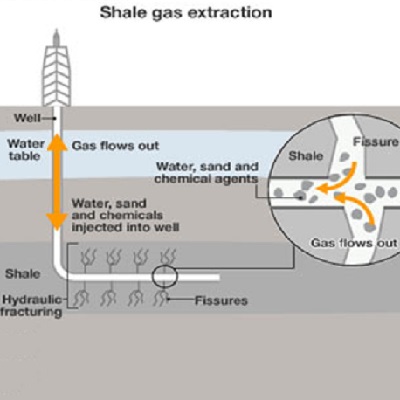Characterizing behaviour of gases in shale reservoirs

With increasing energy prices and advances in drilling and hydraulic rock fracturing (‘fracking’) technology, shale gas has radically changed the energy landscape over the world. However, knowledge on how the gases are trapped within the rock, adsorbed on its surface, dissolved in the pore spaces waters and released after fracking are all poorly constrained. An improved understanding of the controls on gas behaviour is required for shale gas reserve estimation and industrial exploration.
In addition to studying hydrocarbon gases, this project aims to develop novel noble gas geochemical tools for shale gas study. The noble gases (He, Ne, Ar, Kr, Xe) are ideal, because they are chemically inert and noble gases from three different sources have distinct isotopic ratios. Furthermore, noble gases are monitors of water involvement in a system (20Ne, 36Ar), some of the heavy noble gases (Kr, Xe) are adsorbed onto carbon rich materials easier than light noble gases (He, Ne), and radiogenic noble gases (4He, 40Ar) accumulate over time in a system providing age information. However, we lack a basic understanding of how noble gases behave in shales. This PhD project will develop models that can describe noble gas adsorption/desorption, diffusion and transport mechanisms in shales. Combined with traditional hydrocarbon gas models, this study will further our knowledge on shale reservoirs and potentially provide novel exploration tools for shale gas extraction.
While a significant portion of this project will be lab based and involve state of the art mass spectrometry at Lancaster Environment Centre, the PhD student will have chances to work in other world leading labs both in the UK and China. The student will also be expected to organize sample collection trips to the field and liaise with the project collaborators. Training will be provided in lab techniques, fieldwork and geochemical modelling.
Eligibility: Applicants should hold a minimum of a UK Honours Degree at 2:1 or equivalent in subjects such as physics, chemistry, geology, natural sciences, environmental sciences, or similar.
For further details please contact Dr. Zheng Zhou z.zhou4@lancaster.ac.uk
